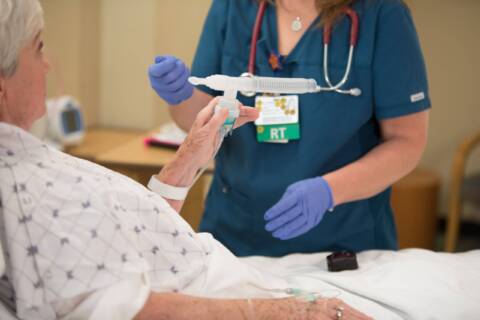Advancements in medical technology combined with an aging population has increased demand for skilled healthcare workers. Learning about the top in-demand healthcare support roles may be a smart first step if you’re considering pursuing a but aren’t interested in eight or more years of formal education. Whether you’re passionate about patient care or medical administration, there is a healthcare profession that aligns with your unique interests and goals. From medical practitioners to allied health specialists, a career in healthcare offers opportunities for growth, job stability and the chance to make a meaningful impact on people’s lives. play a crucial role in providing patient care, coordinating treatment plans and educating patients about their health conditions, medications and self-care techniques. The demand for registered nurses is consistently high due to the growing population and the need for skilled healthcare professionals in various medical settings (i.e., medical clinics, hospitals, schools, home care, etc.). Specialized RNs, such as those in critical care, oncology and gerontology, are particularly in demand as they offer expertise in managing complex medical conditions. are crucial members of the healthcare team, providing essential nursing care and support to patients under the supervision of registered nurses or physicians. LPNs are trained in a variety of nursing procedures, including inserting catheters, giving injections and performing basic diagnostic tests. LPNs often work in long-term care facilities, nursing homes and rehabilitation centers where they provide continuous care to patients with chronic conditions or those in need of extended medical support. Their dedication to patient care and ability to perform essential nursing tasks make them valuable assets in various healthcare environments. Medical and health services managers, also known as or healthcare executives, oversee the operations of healthcare facilities. They handle resource allocation, including staffing, equipment and facilities management in order to meet the needs of patients while maintaining cost-effectiveness and organizational sustainability. As the healthcare industry continues to expand, there is a growing need for skilled administrators who can manage and optimize healthcare facilities. Physical therapists provide rehabilitative care to patients with injuries, disabilities, chronic conditions and those recovering from surgeries. They play a critical role in improving patient mobility, managing pain and enhancing a patient’s overall quality of life. With an increasing preference for rehabilitation and non-invasive treatments, both physical therapists and are in high demand. Physical therapists may specialize in a number of areas, such as orthopedics, sports medicine, neurology and geriatrics. Each specialization caters to different patient populations, offering diverse opportunities within the field. Occupational therapists work with individuals who have physical, developmental or cognitive challenges to improve their ability to perform daily activities. They play a vital role in helping patients regain independence and function. Occupational therapists work in a range of settings, including hospitals, schools, rehabilitation centers and home care. They address various conditions, from helping children with developmental delays to supporting adults recovering from injuries or managing chronic illnesses. The demand for occupational therapists and is rising, particularly as healthcare shifts towards a holistic approach that emphasizes patient-centered care and improving daily functioning. are vital members of the healthcare team, providing both administrative and clinical support to physicians and other healthcare professionals. They play a crucial role in ensuring the smooth functioning of medical facilities and enhancing patient care. The demand for medical assistants is on the rise. Their versatility and ability to multitask make them valuable assets in medical settings, including hospitals, clinics and private practices. For many, a career as a medical assistant serves as a steppingstone to other healthcare professions. It provides a valuable entry point into the healthcare industry, offering practical experience and exposure to various medical specialties. Many medical assistants choose to further their education and pursue advanced careers as registered nurses, physician assistants or other allied health professionals. specialize in treating patients with breathing difficulties and cardiopulmonary disorders. They administer treatments and therapies to improve lung function and manage respiratory conditions. Respiratory therapists work in diverse healthcare settings, including hospitals, emergency rooms, intensive care units, sleep disorder clinics and home care. Their expertise is instrumental in addressing a wide range of respiratory issues across patient populations — especially as respiratory illnesses and chronic respiratory conditions become more prevalent. At , we are committed to equipping students with the knowledge and expertise required to thrive in the ever-changing healthcare industry. We take pride in offering a diverse array of , including associate, bachelor, master and diploma programs. These programs are carefully designed to meet the evolving demands of the healthcare field and enable our students to become proficient in their respective disciplines. Our dedicated team is eager to guide you through our programs and help you work towards a successful and fulfilling . Take the first step today by calling us at 866-529-2070.









